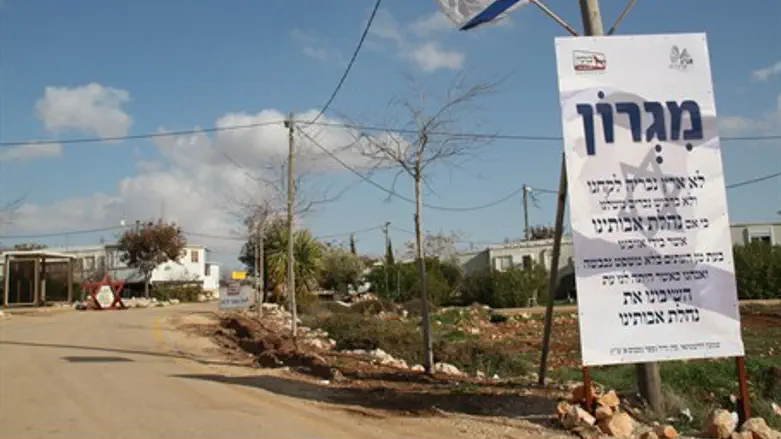
Itai Hemo, spokesman for the Binyamin community of Migron, spoke to Arutz Sheva on Tuesday, after the community’s residents appealed to the Supreme Court to cancel an expulsion order.
The residents are saying that the demolition order on the community should be lifted, because most of the land was secretly purchased from several Palestinian Authority owners through transactions financed by a U.S. donor, whose name has not been revealed.
Hemo told Arutz Sheva that that the purchase of the land shuffled the cards, saying, “Over the past two weeks a huge deal to acquire substantial parts of the community of Migron was concluded. Now it’s another story altogether because, if until now the arguments against Peace Now were that we are right, now we must be right, because even if the land had Arab owners, we now have the documents that indicate that we are the owners of the land.”
More than 50 families in Migron are under the threat of a court-ordered expulsion by the end of the month, with their homes to be relocated to nearby hilltop.
The houses were built with government approval, but the Court sided with Peace Now, which argued in its petition that there is no proof that the land had been legally purchased from Arabs, although the Arabs' alleged legal ownership never has been proven.
Hemo said the latest appeal to the Supreme Court is based on the changed circumstances. “There was a judgment based on some data that has since changed. You cannot say anymore that this is private Arab land. We are seeking to do justice here.”
He added that, despite the change in circumstances, the residents of Migron will still be happy to see new homes being built at Givat HaYekev in Kochav Yaakov, which is the temporary housing site the evicted residents were supposed to move to, as part of an agreement negotiated with the government.
“We are happy with construction anywhere and this also applies for Givat HaYekev,” said Hemo. “We asked the Court to change the verdict to apply only to those lands that are still under dispute, and there very small parts of land that are still under dispute.”
